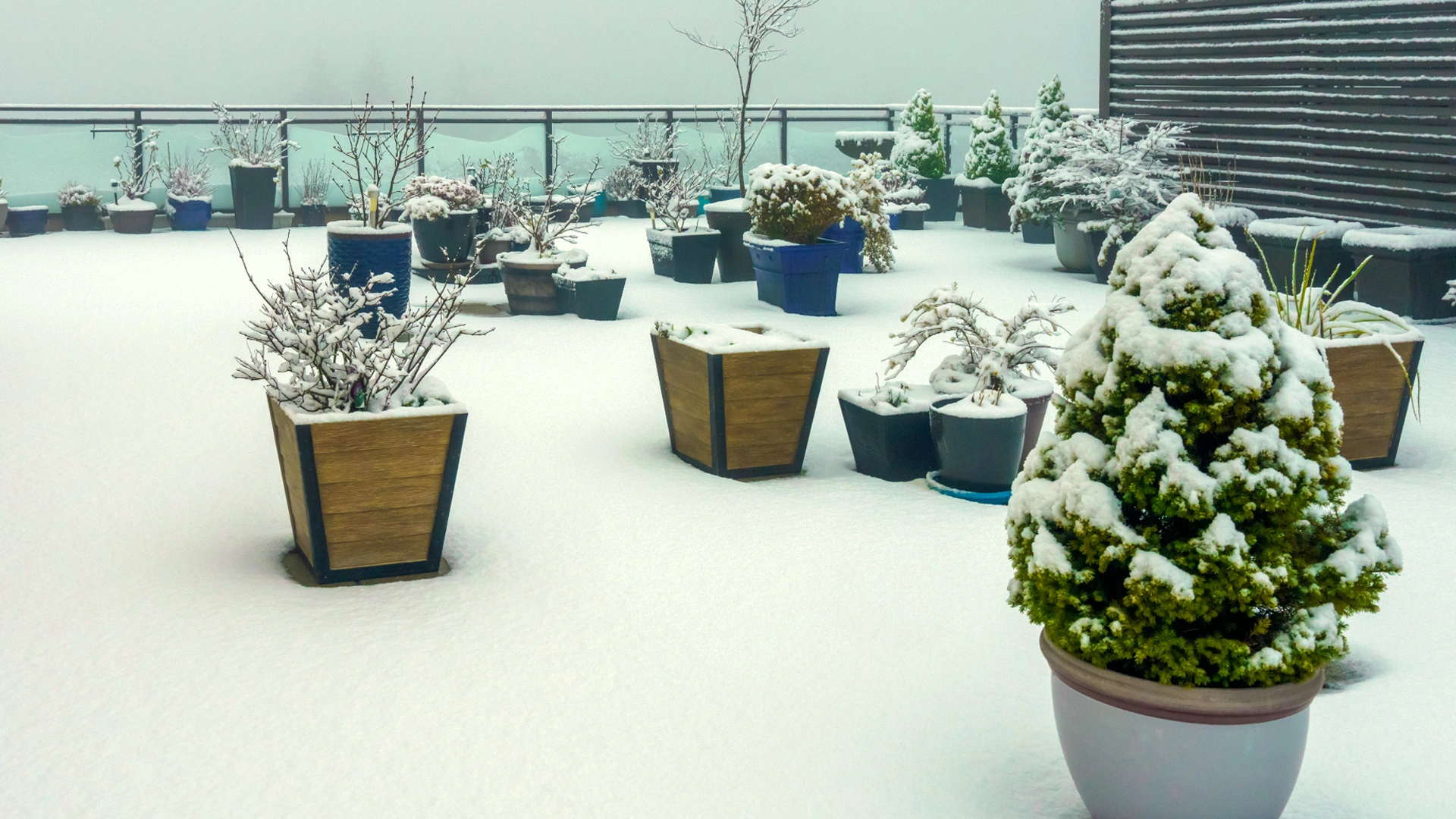
Blog
Protecting the irrigation system from winter frost
9 October 2025
The integrity of an irrigation system can be compromised by winter. Winter frost can cause damage such as pipe breaks, valve malfunctions, and pump issues. Targeted seasonal maintenance can protect components, ensuring efficiency and longevity.
In this article, we provide guidance on how to manage winter irrigation without surprises.
Preliminary system inspection
Before the harsh cold sets in, it’s important to inspect the system: check for leaks, damage, or worn-out parts. Verifying the condition of pipes and connections allows for timely intervention, reducing the risk of breakage during winter.
At this stage, it’s also useful to document the system’s condition, noting any components that need to be replaced or repaired. Checking filters and fittings helps prevent blockages or malfunctions when the system is reactivated in spring.
Draining and protecting components
Pipes and valves must be drained of residual water to prevent ice from causing cracks. It is advisable to remove or protect the most delicate components, such as pumps and control units, using insulating materials or covers suitable for the season.
For a guide on how to properly shut down the system before winter, you can read this article with full instructions.
Routine maintenance
Even in winter, the system requires periodic checks. Make sure the valves are working properly and that there is no debris buildup in the filters. Regularly inspect the pumps to ensure there are no leaks or signs of wear, and check the condition of automatic controllers.
Consistent maintenance reduces the risk of malfunctions and extends the system’s lifespan, avoiding urgent and costly repairs when temperatures rise again.
Common mistakes to avoid
Avoid leaving stagnant water in the pipes, neglecting pump protection, or postponing seasonal checks. Residual water can freeze, expand, and cause cracks and ruptures in the pipes, damage to solenoid valves, and pump malfunctions.
Do not underestimate the need to insulate components exposed to the elements, such as surface pipes, control units, and fittings, using insulating materials or appropriate covers.
Check and, if necessary, replace the batteries in tap-mounted control units and ensure that automatic controllers are functioning properly.
Even small details can make a big difference. Neglecting them can lead to costly damage and significantly reduce irrigation efficiency in spring, resulting in urgent interventions and premature component replacements.
Professionals in the irrigation sector know how important it is to prepare systems for the cold season.
With these precautions, maintenance becomes a simple task that protects every component and ensures a trouble-free winter.
By reading our blog, you can find many more tips on irrigation.
Discover the latest innovations
in irrigation systems!